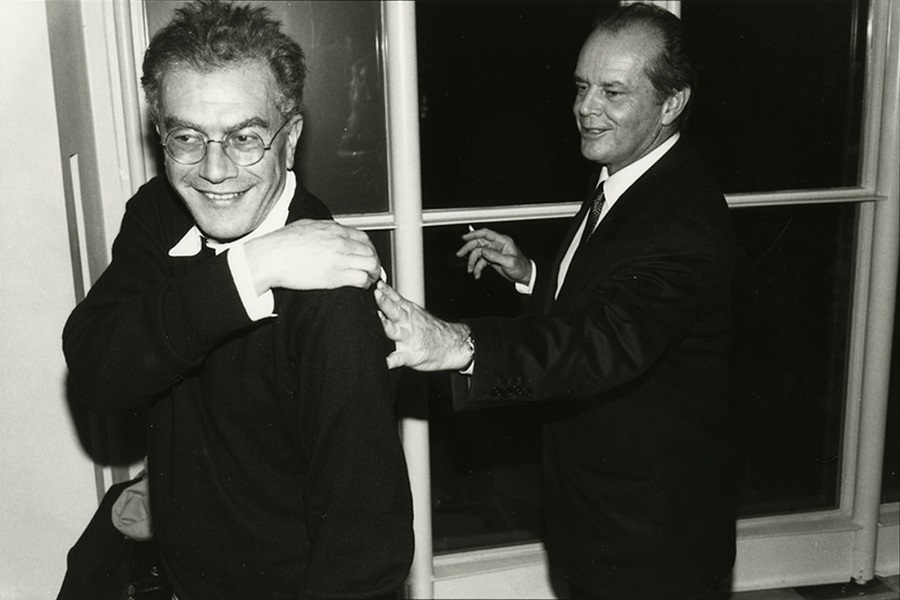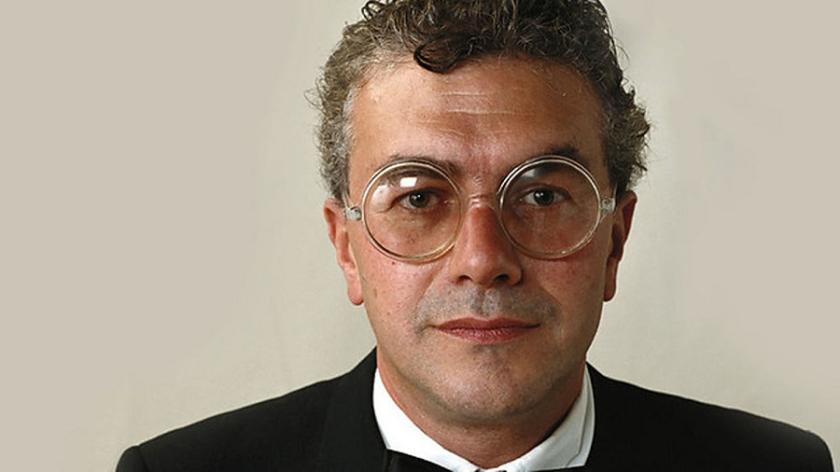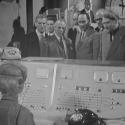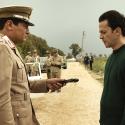Nearly 20 years ago the West End was in a lather of excitement about a show called Voyeurz. A "musical revue" set in a nightclub on Manhattan, it was all about a young girl venturing into the uncharted caverns of her own sexuality, and it was opportunistically crammed with hot sapphic action. It tanked. Its producer and co-director was Michael White, known to his legion of chums as Chalky.
Voyeurz was a last throw of the dice for White. An impresario always on the lookout for the unexpected artistic gamble, he coughed up the money for Oh! Calcutta! and The Rocky Horror Show, for Dame Edna Everage and a pre-Lennon Yoko Ono, A Chorus Line and The Comic Strip Presents. But a musical exploration of lesbo-chic turned out not to be a commercially sound investment. There was no mention of Voyeurz in The Last Impresario, a feature-length profile which went out in the Imagine slot.
The elusive White was typically an absentee from his own life story
This wasn’t an Imagine documentary as such. Alan Yentob introduced it, and appeared as an articulate talking head. In fact Gracie Otto’s film was premiered as a standalone title at the London Film Festival in 2013. The film came about in a manner characteristic of White, whose lifelong attraction to beautiful young women seems to be an entirely mutual arrangement, even when he’s skint and able to offer little but twinkles and effervescence. He and Otto got chatting at the Cannes Film Festival, and with his blessing she went on to speak to pretty much everyone who has ever known him intimately. Not just wives, girlfriends, children, former assistants and all the stars to whom he gave a first break, but figures from plummy high society, rakish money men and the royalty of fashion. White’s sharp eye meant he was, said Anna Wintour, “by far the first person to talk to me about Kate Moss”. And Moss, whose voice is very seldom heard, hailed him as "the only one that could really keep up with me”.
How to encompass the range of his extraordinarily catholic career? Well, this is the impresario who in the Sixties introduced London audiences to both Merce Cunningham and Bill Oddie. The story of his risk-taking was efficiently told, mostly through the eyes of those whom he enabled. But this wasn’t remotely the tale of a series of hits and misses. Otto was as fascinated by the enigma of a socialite, both gregarious and private, whose interest in everyone around him helped to paper over the lingering pain of being sent away to a Swiss boarding school at the age of seven. That would put a crinkle in anyone’s character. In White it created a craving for the validation of company, and an obsessive need to chronicle his presence. In the home of his second wife he stores a vast archive of 30,000 photographs, mostly of celebs, nobs and royals he has met and known. It would be quicker to list the people who weren’t there. (Pictured below: White with Jack Nicholson)
 Having suffered a stroke, the elusive White was typically an absentee from his own life story. He popped up here and there like a wizened Peter Pan but, clearly allergic to confrontation, he fended off all enquiries which might cloud his sunny horizon – anything to do with health, money or his calamitous faith in the concept of an honourable handshake. “I don’t like these questions,” he moaned at one point. An uncaptioned quotation – it was a woman’s voice – advised that “Michael can’t show his feelings, which is why he surrounds himself with photos. Photos don’t get up and bite back at you.” His camera, you sensed, was both voyeuristic implement and defensive shield.
Having suffered a stroke, the elusive White was typically an absentee from his own life story. He popped up here and there like a wizened Peter Pan but, clearly allergic to confrontation, he fended off all enquiries which might cloud his sunny horizon – anything to do with health, money or his calamitous faith in the concept of an honourable handshake. “I don’t like these questions,” he moaned at one point. An uncaptioned quotation – it was a woman’s voice – advised that “Michael can’t show his feelings, which is why he surrounds himself with photos. Photos don’t get up and bite back at you.” His camera, you sensed, was both voyeuristic implement and defensive shield.
The Last Impresario was a glittering entertainment, a spangled hagiography, and entirely in keeping with its Zelig-like subject who for 50 years has been at every party and hovered at every shoulder without giving anything away (apart from money). But there is no torch powerful enough to shine a light past the kind, charming epicurean veneer into the mysterious shadows of White’s inner psyche, with which no one who's hung out with him seems to have any familiarity. It would have been instructive to hear more about his Jewish identity – his parents were the children of refugees from Eastern Europe. Instead the film swam in the shallows, possibly the hollows, of a man who has always clung to the principle of perpetual motion. As he said on Desert Island Discs, around about the time of the Voyeurz debacle: "You’ll have lots of stability when you’re dead."















Add comment